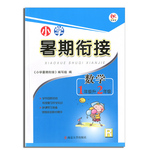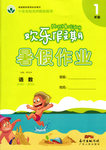题目内容
阅读下面的短文,然后按照要求写一篇150词以上的英语短文。
In the past, if I had to look away from my phone, I felt like I was going to die. When I had lunch with my family or dated with my friends, I couldn’t resist replying to a text message or checking my Facebook, WeChat on the mobile phone. Before long, it was easy for me to get tired. The more I texted during the day, the poor my sleep was. I couldn’t even focus on my study.
My friend told me that people who can’t help checking their phones all day are known as Phubbers (低头族). Phubbing trends not only to involve the young people, but also the elderly. Soon, I noticed a Stop Phubbing campaign site had been launched. I found the slogan of the website as follows: stop twittering, stop posting photos…enjoy your food, enjoy the music and respect your campaign.
Thankfully, I realized there was actually an outside world. My divided attention could keep me from what is truly important. Now, I can use the phone without feeling like a drug addict. I have more time to enjoy real-life activities. Use your cell phone and don’t let it use you.
【写作内容】
1.用约30个词概括上文的主要内容。
2.用约120词就“拒为低头族”的话题谈谈你的想法,内容包括:
1)你周围有低头族吗?他们成为“低头族”的原因。
2)成为“低头族”给学习和生活带来的影响。
3)就如何“拒为低头族”提一些建议。
【写作要求】
1、作文中可以使用亲身经历或虚构的故事,也可以参照阅读材料的内容,但不得直接引用原文中的句子;
2、作文中不能出现真实姓名。
【评分标准】
概括准确,语言规范,内容合适,语篇连贯。
One possible version:
According to the passage, the author was addicted to playing mobile phone and it affected his normal life. However, Stop Phubbing campaign helped him realized the importance of the real life and he could use phone reasonably.
Nowadays, we can see many people are watching their mobile phones in subway, restaurants, elevators, roads and so on. There is no denying that people who like the mobile phone are concerned about its attractive functions. Phubbers can’t stop sending messages, surfing on the Internet, listening to music and even taking photos by using the mobile phone. Moreover, some people have less time to relax themselves. They make use of the time when they are on the way to school or other places to play mobile games.
However, phubbing disturbs not only our study but also our life. On the one hand, phubbers waste lots of time playing cell phone games and sending messages, particularly in class. Other people also complain they are disturbed when phones ring in classrooms. On the other hand, it canlead to health problems. For instance, using a mobile phone on the sofa can cause back and neck pain.
As far as I am concerned, it’s high time that we threw away the phone and raised our heads up.Do cherish everything around us and appreciate the scenery ahead of us. What’s more, we should do more exercises and take part in real-life activities. In a word, only when we use the phone reasonably, can we realize the happiness of life.
【解析】
试题分析:本次作文为提纲作文。写作对象为“低头族”。因其要求部分有要进行总结的英语短文,故作文难度加大。题文要求该篇作文的要点为:题文英语短文的概括;现象及原因;影响;建议,写作方向明确,但具体内容需要仔细构思。文章针对的是目前的一种现象,故基本时态应为一般现在时。
写作亮点:该篇范文出色地完成了写作任务,要点全面,条理清晰,表述清楚明了。其语言的使用地道准确,尤其是连接性词语的使用精妙恰当让文章行云流水,而其句式的运用也有很多可以借鉴之处,例如:句式“There is no denying that”(无可否认的是),动名词作主语“using a mobile phone on the sofa can cause back and neck pain. ”,倒装“In a word, only when we use the phone reasonably, can we realize the happiness of life.”。总之,该篇文章体现了该考生出色的语言功力。

 学而优暑期衔接南京大学出版社系列答案
学而优暑期衔接南京大学出版社系列答案 Happy holiday欢乐假期暑假作业广东人民出版社系列答案
Happy holiday欢乐假期暑假作业广东人民出版社系列答案